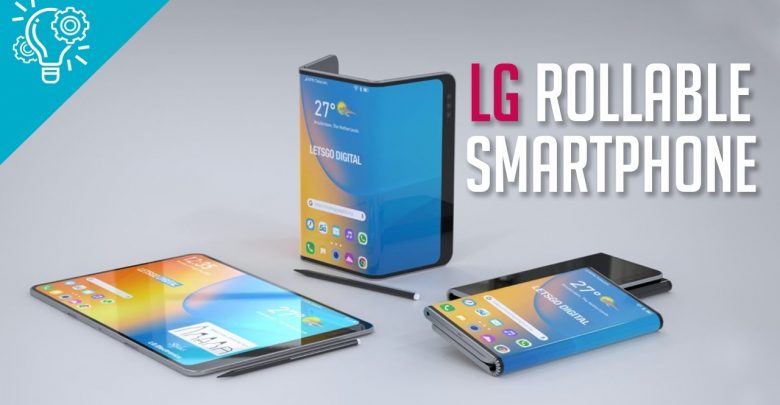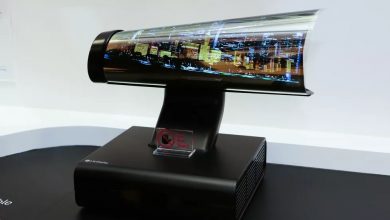
LG has always been an innovator in the smartphone market by introducing some wacky ideas. From swivel devices like last year’s LG Wing to modular phones like the LG G5, the Korean company has always liked to do things differently. Example: at CES 2021, LG introduced a rollable phone that impressed us in every way.
Unfortunately, LG’s rollable phone might be its final innovative phone in the smartphone space as the company is considering exiting the market entirely.
LG’s footprint in the smartphone market has been chipped away at for years, but next year the company actually calls it quits. That’s right, LG has officially confirmed that it’s considering leaving the smartphone market in 2022.
A report earlier this week from The Elec (since deleted) claimed that LG higher-ups had notified employees of the potential plans, but LG representatives flat out denied that this was the case.Then all of a sudden, another report from The Korea Herald is bringing that back to the table, and this time LG isn’t denying it.
LG CEO Kwon Bong-seok sent an internal memo to employees on Wednesday saying that “it’s about time” for the company to take a hard look at things and possibly make “the best choice.” What is that best choice? Apparently, LG is weighing out downsizing its smartphone business, withdrawing from the market entirely, and potentially even selling off its smartphone business and assets.
According to the Korea Herald, Samsung CEO Kwon Bong-seok sent out a message to employees Wednesday (Jan. 20), indicating major changes would be coming to its mobile division. Bong-seok was quick to state that there would not be mass layoffs.
“Regardless of any change in the direction of the smartphone business operation, the employment will be maintained, so there is no need to worry,” Bong-seok said.
This suggests a major pairing down or complete elimination of the company’s smartphone department. It comes after a difficult five years in the smartphone business as the company has lost $4.5 billion.
“I can confirm that LG Electronics is exploring a variety of options in light of the headwinds facing our mobile business,” an LG representative said in an email exchange with Tom’s Guide. “Any additional comments would be speculation. We will be in touch if and when there is news to share.”
This comes a year after Bong-seok committed to making LG’s mobile division profitable by 2021. But then coronavirus had gripped the world and tumbled many markets including the smartphone market. Even companies like Apple saw a dip in smartphone sales, which follows a general downward trend over the past five years.
But LG’s market forecast has been far more dire. The company had been posting operating losses for 23 consecutive quarters.
“The smartphone market dangles wild profits in front of manufacturers, but only a few companies claim the riches,” said Avi Greengart, president and lead analyst at Techsponential, a market research and advisory company.
Not only was LG’s phone division a customer of its own components and displays, it was also the driving force of the company’s overall vision.
“Smartphones were supposed to be the hub for LG’s AI and IoT ecosystem that connects LG televisions and LG home appliances,” Greengart said. “Exiting smartphones entirely would mean conceding defeat not just to Apple, but to cross-town rival Samsung, while abandoning major strategic ambitions across the company.”
Why LG phones may not be resonating with consumers can be explained by multiple reasons. Strong competition from both Apple and Samsung on the enthusiast end has left LG’s offerings feeling short.
For years, LG’s premium V series, like last year’s V60 ThinQ, had trouble competing with Samsung in both design and camera performance. LG dropped the V series for its Velvet, a more affordable option with higher end specs. But that too was outclassed by phones like the OnePlus 8.
If LG couldn’t compete with performance and design, its only differentiating factor was novelty. And while swiveling phones like the LG Wing are cool, it attracts a niche crowd, one that’s willing to overlook certain specification shortcomings for something offbeat.
At the moment, LG commands less than 2% of smartphone market share. It’s unfortunate, as LG’s does bring forward inspired products. If LG could do a better job in bringing products that compete and excite on the enthusiast end while also finding ways to remain competitive at the mid-range against companies like OnePlus, then the company might find its audience. But if it does exit the space, the market will have lost one of its major innovators.
This suggests a major pairing down or complete elimination of the company’s smartphone department. It comes after a difficult five years in the smartphone business as the company has lost $4.5 billion.
“I can confirm that LG Electronics is exploring a variety of options in light of the headwinds facing our mobile business,” an LG representative said in an email exchange with Tom’s Guide. “Any additional comments would be speculation. We will be in touch if and when there is news to share.”
Since the competition in the global market for mobile devices is getting fiercer, it is about time for LG to make a cold judgment and the best choice. The company is considering all possible measures, including sale, withdrawal and downsizing of the smartphone business.
Unlike last time around, LG has since confirmed that this message is real, explaining to The Verge that nothing has been decided on at this point.
Honestly, this comes as no surprise. To say that LG has failed to gain traction in the market is an understatement. Over the past several years, LG’s mid-range and flagship phones have consistently been behind competitors such as Samsung and Apple and have been less critically revered than devices from Google and other Android OEMs.
Software support has also been an ongoing issue for LG as the company has been notorious for not updating its Android smartphones in a timely manner for years. As a result of evaporating consumer interest, the company has seen very little success in all markets, especially in the United States where LG phones are no more than vessels for carriers to adjust and sell as they see fit.
To put things in perspective, the last time that an LG phone was truly compelling against Samsung, Apple, and Google releases was the LG G4 released in 2015. There have been some highlights in the time since such as LG V60, LG Velvet, and even the wacky LG Wing, but those efforts were simply too little, too late.

